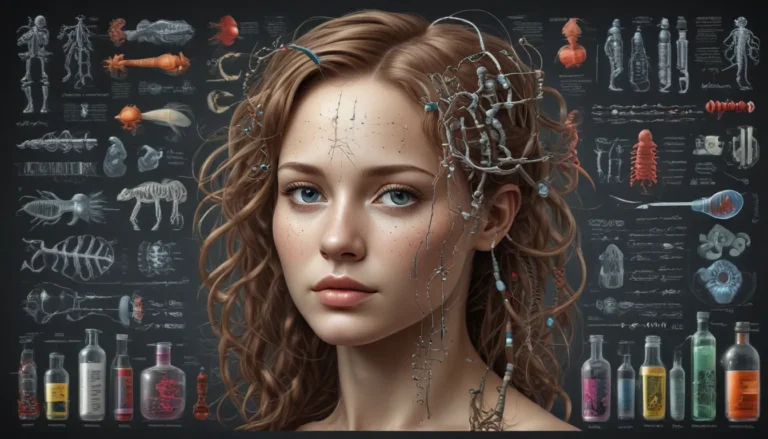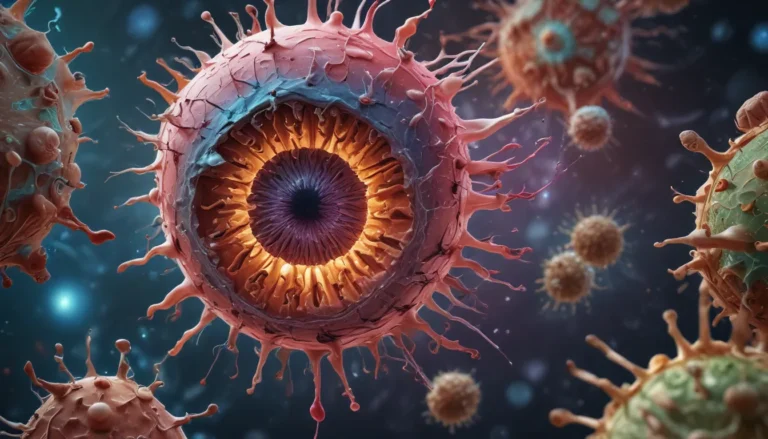A Note About Images: The images used in our articles are for illustration purposes only and may not exactly match the content. They are meant to engage readers, but the text should be relied upon for accurate information.
In today’s world, where the importance of health and well-being has never been more evident, immunization stands out as a cornerstone of public health. Immunization, also known as vaccination, plays a crucial role in preventing the spread of infectious diseases and has saved millions of lives globally. From protecting against deadly diseases to maintaining herd immunity, vaccines are a powerful tool in our fight against illness. Let’s delve into the surprising and lesser-known facts about immunization that will enlighten and inspire you.
The Impact of Vaccines: Saving Lives and Preventing Diseases
- Vaccines save millions of lives every year by preventing the spread of infectious diseases like measles, polio, and influenza.
- Immunization can prevent up to 3 million deaths annually, showcasing the critical role vaccines play in reducing mortality rates worldwide.
- Vaccines are rigorously tested for safety and efficacy before being approved for public use, ensuring their effectiveness in preventing targeted diseases.
- Investing in immunization programs is one of the most cost-effective health interventions, offering economic benefits by reducing healthcare costs and improving productivity.
Beyond Infectious Diseases: The Multifaceted Benefits of Vaccines
- Vaccines are not limited to preventing infectious diseases but can also protect against certain types of cancer, such as cervical and liver cancer, through vaccines like the HPV and hepatitis B vaccines.
- By stimulating the body’s immune response, vaccines equip our bodies with the tools to fight off future infections and create herd immunity, limiting the spread of diseases.
- Thanks to widespread immunization efforts, diseases like smallpox have been eradicated, and others, such as polio and measles, are on the verge of elimination in many parts of the world.
Lifesaving Immunization: Protecting Vulnerable Populations
- Immunization is particularly life-saving for newborns and infants, who are vulnerable to infectious diseases. Timely vaccination can protect them from serious illnesses and potential fatal complications.
- Vaccines undergo rigorous surveillance even after approval to monitor their safety and effectiveness continually, ensuring ongoing protection for recipients.
Collaborative Efforts: The Key to Successful Immunization Programs
- Successful immunization initiatives require collaboration and coordination between healthcare providers, governments, communities, and international organizations to ensure access to vaccines and proper delivery.
- Immunization campaigns can reach remote and marginalized populations, ensuring that even the most vulnerable individuals have access to life-saving vaccines tailored to their needs.
The Safety and Effectiveness of Vaccines: Debunking Common Myths
- Vaccines have an excellent safety record, with the majority of administrations resulting in minor and temporary side effects. Serious adverse events are extremely rare.
- Following the recommended vaccination schedule throughout our lives ensures that we continue to receive protection against diseases and contribute to the overall health of our communities.
FAQs: Addressing Common Concerns About Vaccines
- Are vaccines safe? Yes, vaccines are rigorously tested for safety, and serious side effects are extremely rare.
- Can vaccines cause autism? No, extensive research has shown no link between vaccines and autism.
- Do vaccines provide lifelong immunity? Some vaccines offer long-lasting protection, while others may require booster shots.
- Can vaccines make you sick? Vaccines stimulate the immune system, which may result in mild symptoms as a sign of effectiveness.
- Why are vaccines necessary if diseases are rare? Vaccines maintain community immunity and prevent diseases from re-emerging.
- Can adults benefit from vaccines? Absolutely, vaccines are essential for adults too to protect against various illnesses.
- Can pregnant women receive vaccines? Yes, certain vaccines are safe and recommended for pregnant women.
- Can individuals with allergies receive vaccines? In most cases, individuals with allergies can receive vaccines with proper precautions.
- Can vaccines cause serious side effects? Serious side effects from vaccines are extremely rare.
- Can vaccines prevent all diseases? While highly effective, vaccines may not provide 100% protection in all cases.
Unlocking the Mysteries of Immunization: Delving Deeper into Your Immune System
Immunization is a powerful tool in the fight against disease, and there’s much to learn about how vaccines work. Curious about how your body develops immunity or the intricacies of immune memory? Explore more surprising facts to deepen your understanding of the incredible immune system and the role of vaccines in protecting your health.
Trustworthy and Engaging Content: Our Commitment to Quality
Our dedication to delivering trustworthy and engaging content is at the core of what we do. Each fact on our site is contributed by real users, ensuring a wealth of diverse insights and information. Our editors meticulously review each submission to guarantee accuracy and reliability in the facts we share. Explore, learn, and trust in our commitment to quality and authenticity as you uncover the fascinating world of immunization.
Immunization is a critical aspect of public health, and by understanding the facts and benefits of vaccines, we can make informed decisions to protect ourselves and our loved ones. Let’s embrace the power of immunization and work together towards a healthier, safer world with fewer preventable diseases.






